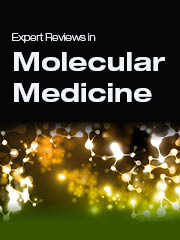Crossref Citations
This article has been cited by the following publications. This list is generated based on data provided by
Crossref.
Gilbert, Leona
Toivola, Jouni
Välilehto, Outi
Saloniemi, Taija
Cunningham, Claire
White, Daniel
Mäkelä, Anna R
Korhonen, Eila
Vuento, Matti
and
Oker-Blom, Christian
2006.
Truncated forms of viral VP2 proteins fused to EGFP assemble into fluorescent parvovirus-like particles.
Journal of Nanobiotechnology,
Vol. 4,
Issue. 1,
Krüger, L
Eskerski, H
Dinsart, C
Cornelis, J
Rommelaere, J
Haberkorn, U
and
Kleinschmidt, J A
2008.
Augmented transgene expression in transformed cells using a parvoviral hybrid vector.
Cancer Gene Therapy,
Vol. 15,
Issue. 4,
p.
252.
Hahn, Peter
and
Scanlan, Elizabeth
2010.
Nucleic Acid Transfection.
Vol. 296,
Issue. ,
p.
1.
Liu, Huiquan
Fu, Yanping
Xie, Jiatao
Cheng, Jiasen
Ghabrial, Said A.
Li, Guoqing
Peng, Youliang
Yi, Xianhong
and
Jiang, Daohong
2011.
Widespread Endogenization of Densoviruses and Parvoviruses in Animal and Human Genomes.
Journal of Virology,
Vol. 85,
Issue. 19,
p.
9863.
Halder, Sujata
Nam, Hyun-Joo
Govindasamy, Lakshmanan
Vogel, Michèle
Dinsart, Christiane
Salomé, Nathalie
McKenna, Robert
and
Agbandje-McKenna, Mavis
2012.
Production, purification, crystallization and structure determination ofH-1 Parvovirus.
Acta Crystallographica Section F Structural Biology and Crystallization Communications,
Vol. 68,
Issue. 12,
p.
1571.
Halder, Sujata
Nam, Hyun-Joo
Govindasamy, Lakshmanan
Vogel, Michèle
Dinsart, Christiane
Salomé, Nathalie
McKenna, Robert
and
Agbandje-McKenna, Mavis
2013.
Structural Characterization of H-1 Parvovirus: Comparison of Infectious Virions to Empty Capsids.
Journal of Virology,
Vol. 87,
Issue. 9,
p.
5128.
Majerciak, Vladimir
and
Zheng, Zhi-Ming
2013.
Advanced Techniques in Diagnostic Microbiology.
p.
693.
Huang, Lin-Ya
Halder, Sujata
and
Agbandje-McKenna, Mavis
2014.
Parvovirus glycan interactions.
Current Opinion in Virology,
Vol. 7,
Issue. ,
p.
108.
Majerciak, Vladimir
and
Zheng, Zhi-Ming
2018.
Advanced Techniques in Diagnostic Microbiology.
p.
345.
Khanduja, Shradha
Bloom, Shoshana M.K.
Raman, Vishnu
Deshpande, Chinmay P.
Hall, Christopher L.
and
Forbes, Neil S.
2024.
Intracellular delivery of oncolytic viruses with engineered Salmonella causes viral replication and cell death.
iScience,
Vol. 27,
Issue. 6,
p.
109813.


